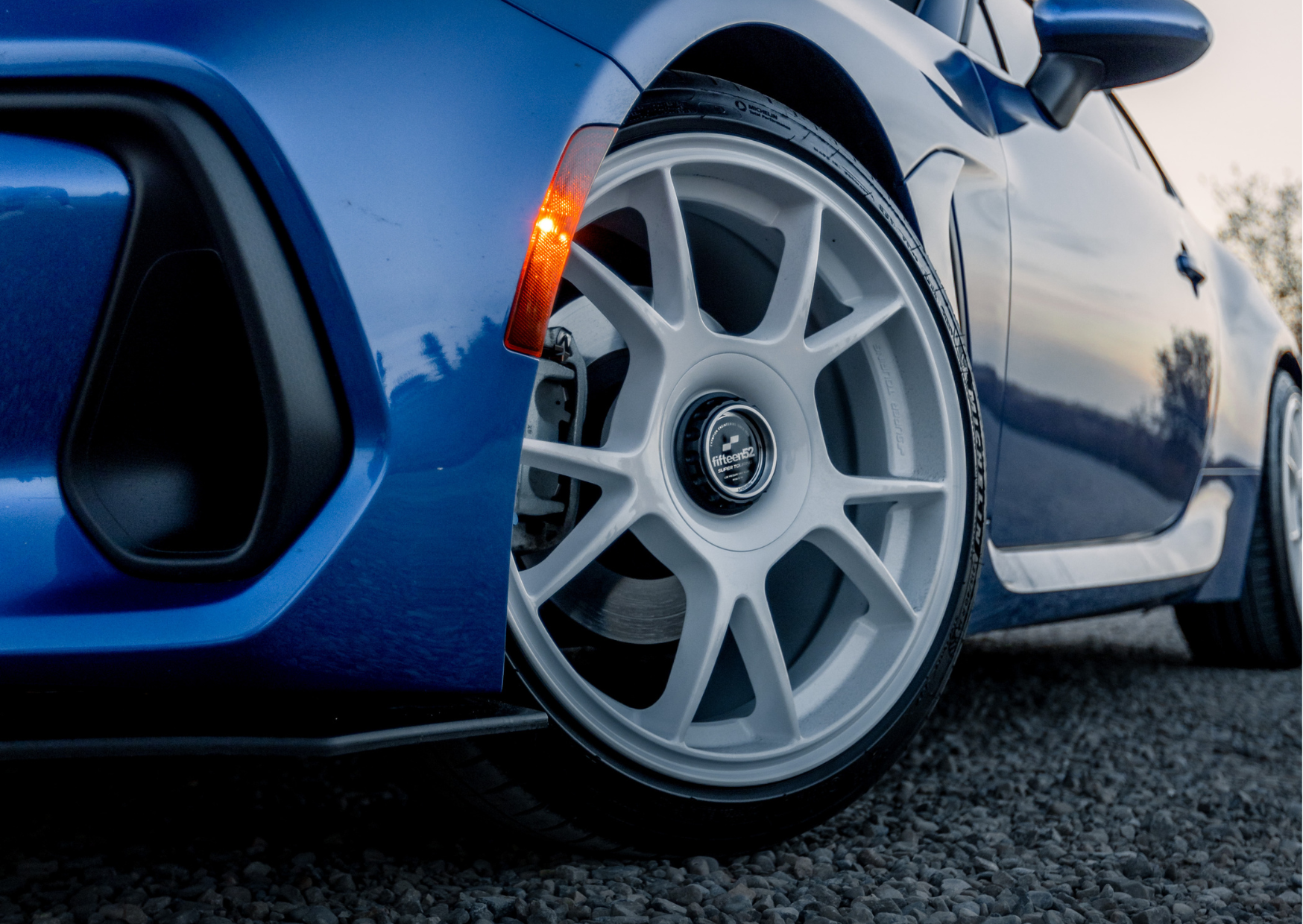At Fifteen52 Wheels, we believe that wheels are more than just functional components; they’re a statement of style, performance, and craftsmanship. Behind every iconic wheel design is a meticulous process that involves choosing the right materials and construction methods to achieve the perfect balance of strength, durability, and weight. It’s because of this passion that we want to delve into the fascinating world of wheel materials and construction, shedding light on the choices that impact your driving experience, as well as your purchase decisions.
The Foundation: Wheel Materials
When it comes to wheel materials, material selection plays a pivotal role in determining the wheel’s performance characteristics. Here are some common materials used in wheel construction:
A356.2 Aluminum
A356.2 aluminum alloy is widely used in the casting process. It’s known for having excellent castability, making it a popular choice for creating those super intricate wheel designs. This material provides a good balance between strength and weight, making it suitable for a variety of applications.
T6-6061 Aluminum
T6-6061 aluminum is a heat-treated alloy celebrated for its exceptional strength and corrosion resistance. This material is often chosen for its ability to withstand heavy loads and harsh conditions, making it especially ideal for off-road and racing wheels that take a beating by virtue of their usage.
AA7075 Aluminum
AA7075 is a high-strength aluminum alloy with remarkable tensile strength. Known for its lightweight properties it’s often used in aerospace applications. While not as common in wheel manufacturing, it can be found in high-performance racing wheels, especially when every last bit of weight savings counts.
Construction Methods: Forging, Casting, and Flow Forming
Wheel construction methods can dramatically influence a wheel’s strength, durability, and weight. Let’s break down the three primary methods: Casting, Forging, and Flow Forming.
Casting
Casting is the most common wheel manufacturing method. It involves pouring molten metal (such as A356.2 aluminum) into a mold to create the wheel’s shape. Casting is cost-effective and allows for intricate designs. Compared to the other methods listed here, cast wheels are generally heavier and may not be quite as strong as forged or flow-formed counterparts but are still a great choice for many drivers.
Forging
Forged wheels are crafted from a solid piece of aluminum (often T6-6061 or AA7075). The metal is subjected to high pressure and heat, resulting in a dense, uniform structure. Forged wheels are exceptionally strong and lightweight, making them ideal for high-performance applications. When you think “forged’ armor may come to mind, which tracks because this method of making wheels leaves you with an incredibly durable product that can carry the weight, and take a heavy hit or three.
Flow Forming
Flow forming, often referred to as rotary forging, flow-forged, spun-rim, or rim-rolling, is a unique process that combines the best of both casting and forging using a combination of heat, pressure, and spinning to form the inner rim area of the wheel. This method strikes the perfect balance between, weight, strength, and cost making it a popular choice for manufacturers. 
The Right Wheel for Your Ride
Now that we’ve unveiled the industry secrets behind wheel composition and construction, the question becomes: how do you choose the right wheels for your ride? We have some ideas.
Daily Driver
For everyday commuting and casual driving with your daily driver, cast wheels like the Tarmac EVO offer an excellent balance of affordability and style. If they’re made right, as they are at Fifteen52, a cast wheel is more than durable enough for everyday use, even if the roads in your area aren’t perfect.
Performance Enthusiast
If you crave enhanced performance and aesthetics, consider a set of our Holeshop RSR wheels. A cast wheel with a flow-formed barrel. They will deliver the strength and lightweight properties you desire, albeit at a slightly higher price. Just remember, you get what you pay for, and will often end up with a set of wheels that will handle abuses and stand the test of time for ages.
Off-Road Warrior
When tackling rugged terrain, rocky surfaces, and potentially heavy loads/impacts, you would do well to opt for a set of our cast Patrol HD wheels, built to withstand these tough conditions. Their durability and strength make them the go-to choice for off-road adventures, adding peace of mind to an otherwise sketchy journey.
Weekend Racers
If you frequent the racetrack with a dedicated racecar or even a drift car, consider your budget as the primary focus of your choice. If you’re going to be breaking wheels frequently with dirt drops, wall hits, or off-track “oopsies,” be aware of the cost of replacing wheels. If you can afford the best of the best, go for it, but don’t be afraid to opt for a lower-cost wheel to keep the replacement budget reasonable.
Remember – no wheels are totally invincible.
In the world of wheel crafting, each material and construction method contributes to the uniqueness of every design. At Fifteen52, we’re dedicated to pushing the boundaries of wheel innovation, ensuring that our wheels not only look stunning but also deliver exceptional performance and durability across the board. So, whether you’re cruising down city streets, setting a record lap time, or conquering off-road trails, remember that your wheels are more than just an accessory—they’re a reflection of your style and a testament to the artistry and engineering that defines your driving experience.






